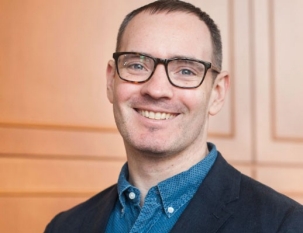That included Concordia’s Department of Journalism, founded in 1975. Its mission statement says: “The department is committed to serving the profession by training future skilled, thinking journalists. We see journalism as a public service essential to a democratic society.”
Yet as the department celebrates its 40th anniversary in 2015-16, the profession is in the midst of major disruptions — such as Postmedia’s cutting of 90 jobs and merging newsrooms of eight dailies across Canada in January — including increased concentration and corporatization and the shift from old to new media — from notepad to iPad.
How has Concordia’s Department of Journalism adapted to the changes? What lays in store for today’s journalism students? “The current upheaval has been going on for a good 10 years,” says Brian Gabrial, chair of the university’s Department of Journalism. “It’s an ongoing move to a digital world, where we are shifting from the more traditional platforms to solely digital, such as La Presse’s move away from publishing a daily paper to just having its app and website in 2016.”
Historically there have been other periods of great change in journalism: Gabrial cites the advent of television and its effect on radio in the 1950s. “Journalism is not going to die,” he says. “People want to know what’s going on, and the people bringing them the news are journalists. I do think today on some level there is a realization that we can’t keep cutting editorial staff without really doing some damage to what a democratic society is supposed to be in terms of keeping the public informed.”

 Brian Gabrial, Chair of Concordia's Department of Journalism
Brian Gabrial, Chair of Concordia's Department of Journalism
 Craig Silverman is founding editor of Buzzfeed Canada.
Craig Silverman is founding editor of Buzzfeed Canada.
 Patti Sonntag, managing editor of the New York Times Syndicate, is Concordia's first Journalist-in-Residence.
Patti Sonntag, managing editor of the New York Times Syndicate, is Concordia's first Journalist-in-Residence.
 Julia Wolfe, seen playing with an Oculus Rift, is the
Julia Wolfe, seen playing with an Oculus Rift, is the